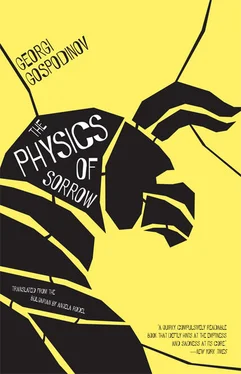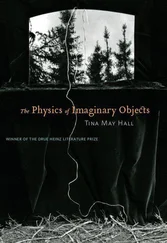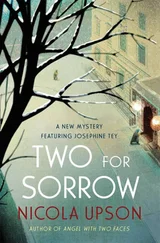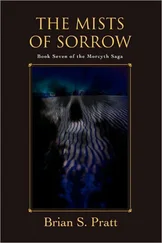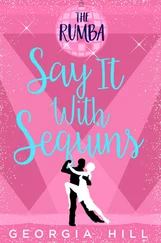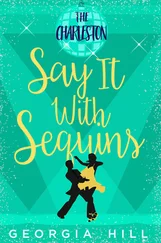IV. TIME BOMB (TO BE OPENED AFTER THE END OF THE WORLD)
THE AGING OF AN EMPATH
Once I could be in everything, be everything. Now, in the ineptness of my mature years, I wanted to gather up everything, as a small compensation for that which I had lost.
The aging of an empath is a strange and painful process. The corridors toward others and their stories, which once were open, now turn out to be walled up. House arrest in your own body.
Earlier, I would at times feel the need to shut myself up in the dark, letting nothing awaken the empathy, to just sit like that in the healing darkness of the nothingness. To keep myself from scattering, to stop the influxes of other people’s sorrows and stories.
The only thing I want now is to remember a few days with that physical intensity of childhood, when I lived out everyone else’s story as my own. What was the diagnosis again — radical empathetic-somatic syndrome. I no longer embed, I only have memories of such embeddings — but what memories! They soar like meteorites in the dark. Sometimes I am (again) the Minotaur, other times Laika the dog, I leave a woman during wartime, I see my nine-month-old father and am happy, they abandon my three-year-old self at a mill at the turn of the century, they kill me as a bull a century later in a bullfight in T.
When I sensed that this ability was starting to fade, that I was undergoing de-empathization, as my doctor might jokingly put it, I resorted to this pale substitute — collecting. I felt an urgent need to horde, to organize things into boxes and notebooks, into lists and enumerations. To preserve things with words. The empty space left behind by one obsession can always be taken up by another. Before, I could inhabit all the bodies in the world, now I’m happy if I manage to move from room to room within the house of my own body. I stay the longest (did I mention this already?) in the children’s bedroom.
Who am I. A forty-four-year-old man, in a basement with thick cement walls, a former bomb shelter. I say I’m forty-four, but add to that the age of my grandfather, who was born in 1913, also add that of my father, born at the end of the second Great War, of Juliet in front of the movie theater, of the escape artist Gaustine, add the ages of yet more people, whom I’ve inhabited for longer or shorter stretches, two cats, a dog, a few slugs, two dinosaurs — their skeletons are in the Berlin Museum of Natural Sciences. Add to all that the incalculable age of one Minotaur, who has never left the home that is my body.
Sometimes I am forty-four, sometimes ninety-one, sometimes in the labyrinth of a cave or a basement, in the night of time, sometimes in the darkness of a womb, as of yet unborn.
Most often, I am ten.
I wonder whether I’ll die as all those things at once? I’ll become totally extinct, he told them, I’ll become totally extinct . like in that kiddie song about dinosaurs, where do I know it from?
FIRST AID KIT FOR AFTER THE END OF THE WORLD
And here’s the first notebook with instructions, begun in the late ’70s, when it became definitively clear that World War III was inevitable — and the end of the world along with it.
I open up to the first page, written in a difficult-to-decipher hand.
Human beings like hugs. If you happen to meet some surviving human being, open your upper appendages up wide and gently squeeze him. For best results, keep your arms like that as long as you can.
(This is followed by a hand-drawn diagram of people hugging.)
This will calm the human being down a lot. He might even start crying with a clear liquid coming from his eyes. Human beings love to cry. It’s no big deal, it can’t kill you. It’s more dangerous if a red liquid starts trickling out of somewhere, it’s stickier, because of the erythrocytes, I think. You have to stop it immediately or it could result in death. Death is.
I had stopped there. Not because I couldn’t explain death. I was already twelve and knew what death is, I could have copied the definition from my biology textbook — the cessation of all the vital functions of an organism is called. But who knows whether the language of those who would find the notebook had developed according to the same logic, whether their words followed that logic and whether they even used language in the first place? Did the ones who would come know what “red” is, for example? Maybe they would use some other word for red, say “blue.” Or “tomato.” Or “ktrnt.” Or maybe they wouldn’t have any words for colors at all:
a) because eyes will have long-since become vestigial organs, they will use far more advanced senses.
b) they won’t read letters, that’ll be a bygone stage, they will be illiterate, which in their case might actually be some kind of supra-literacy.
In any case, I added down at the bottom:
If you find this, you’d best come looking for me, I’ll explain everything in real life (if I’m still alive). You can find me in the basement at the school (the entrance is under the stairway) or in the bomb shelter under the Tobacco Factory, which is three blocks from here.
I signed it, too. Then I decided that wasn’t enough, so I wrote out my full name and a short description of myself. Bluish-green eyes, more greenish in the summer, light hair, tall, with a straight nose, no visible identification marks . Just like in my grandfather’s passport. However, that “no visible identification marks” wouldn’t have helped much in recognizing me, so I added: high forehead with superciliary protuberances (I had heard that from the school doctor during a check-up) and a mole on the left side under my lower lip. I knew that people who hadn’t met in a long time recognized each other by their moles. I also added, which now seems wise to me, that in the year 2000, I would be a thirty-three-year-old man. And since human beings live an average of seventy-five years — and men even a bit less than that — that after 2050 I most likely won’t be able to be of any assistance. But until then I’ll be at their disposal. Then I signed it once again.
He places (I can see him clearly in my memory) the notebook with the instructions in a round metal Singer tin, the most valuable thing he owns. It’s from “before the Ninth,” as his grandfather liked to say. Always, when someone wants to say that something is really old, they say it is from “before the Ninth”—i.e. before September 9, 1944, the date of the communist coup in Bulgaria. It sounds like “before Christ.” And the strangest part of all is that his grandma and grandpa are also from before the Ninth, it’s downright unbelievable. The tin has some strange letters on it, with a big red S on the lid and gold decorations winding around it. Years later, on all of my travels I would recognize in the details of houses and pictures from the turn of the century that Secession style, which, thanks to that tin, had been part of my childhood. A tin for thread and fabric samples given as a free gift along with the sewing machine.
The Singer sewing machine itself had disappeared “after the Ninth” for some strange reason. That was another dark and muddled thing. What existed before the Ninth disappeared after the Ninth. Yet that tin for thread and fabric samples remained, it had somehow managed to smuggle itself from one system into the other, so he could keep all of his treasures in it. The metal was sturdy enough to survive one end of the world, that’s why he put his notebook with instructions inside as well. Just in case, however, he put the Singer tin in a larger, round halvah tin. True, it didn’t look nearly as nice, it was even a little rusty, but it would nevertheless be safer that way, with doubled armor. Besides, who would think to swipe an old halvah tin? Then he tore a sheet of paper out of the notebook, smeared it with a tube of half-dried-up Rila glue and stuck it on top of the halvah label. Then very slowly, in capital letters, he wrote out: “To Be Opened after the End of the World!”
Читать дальше
